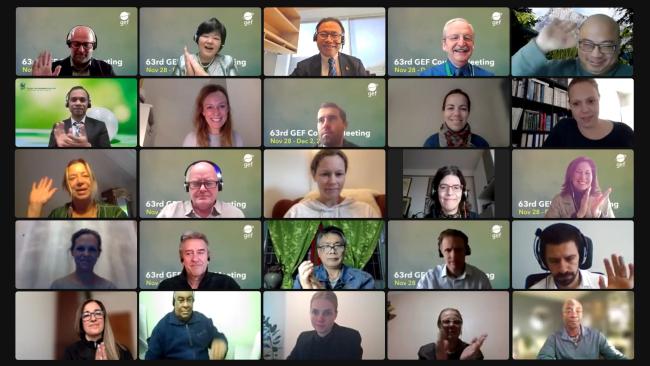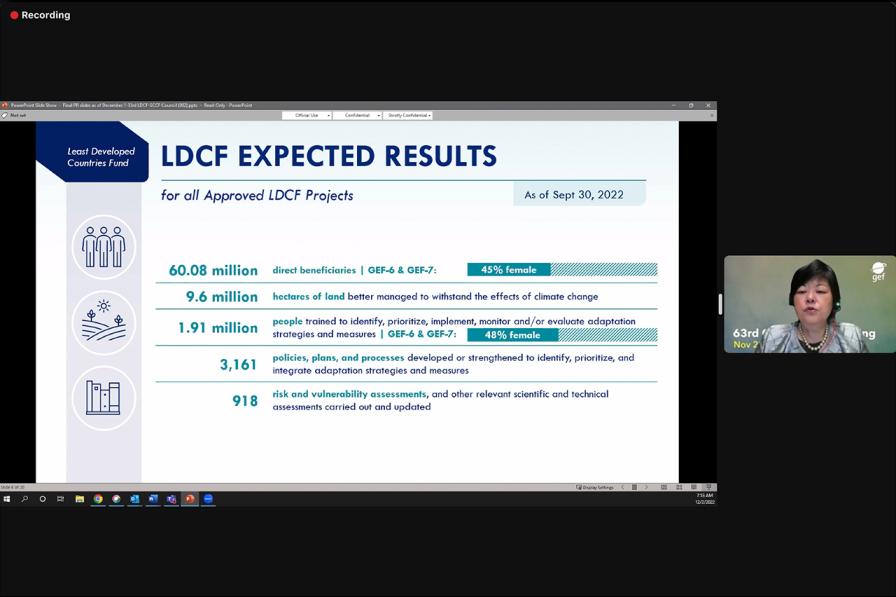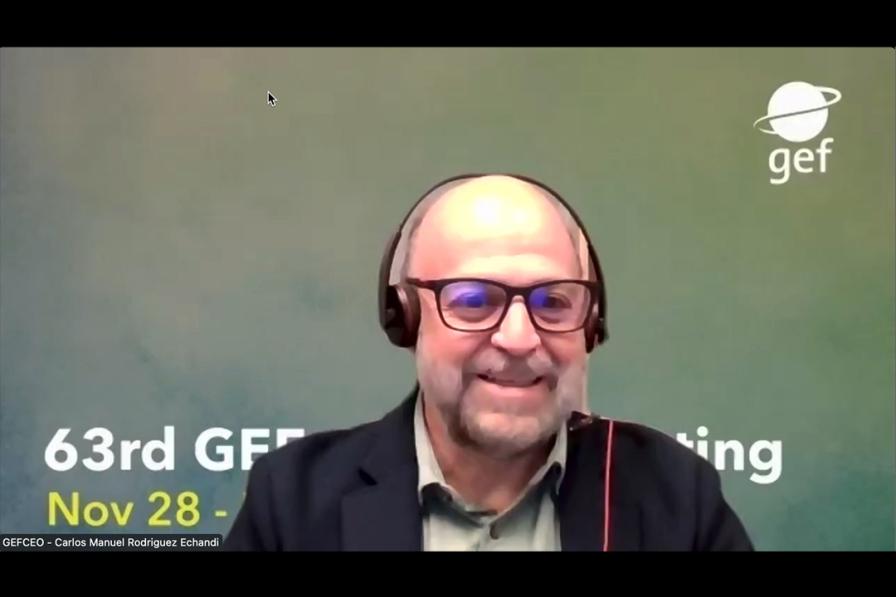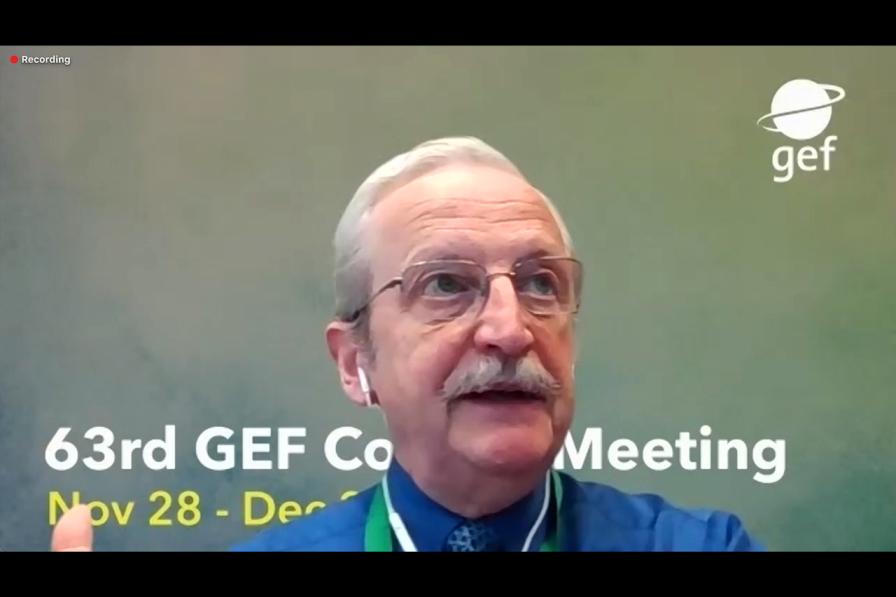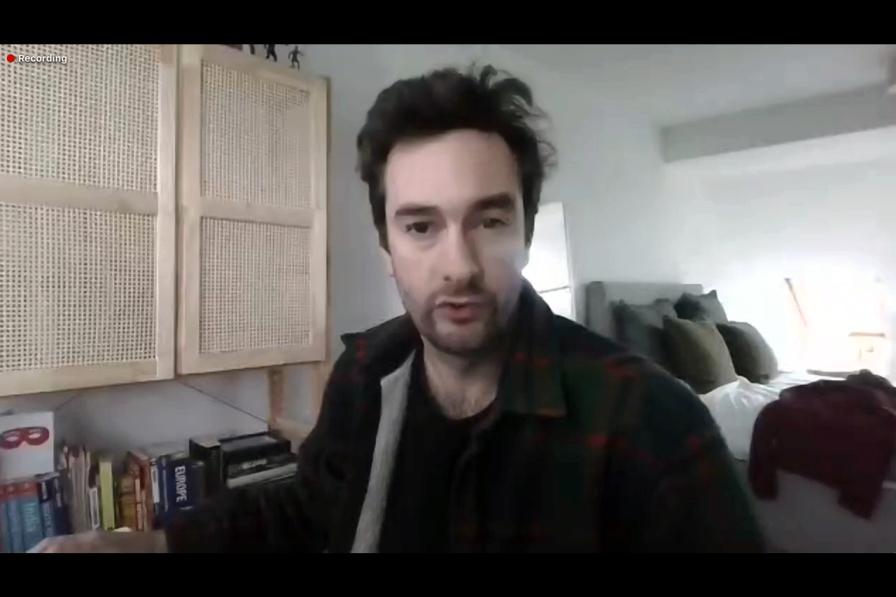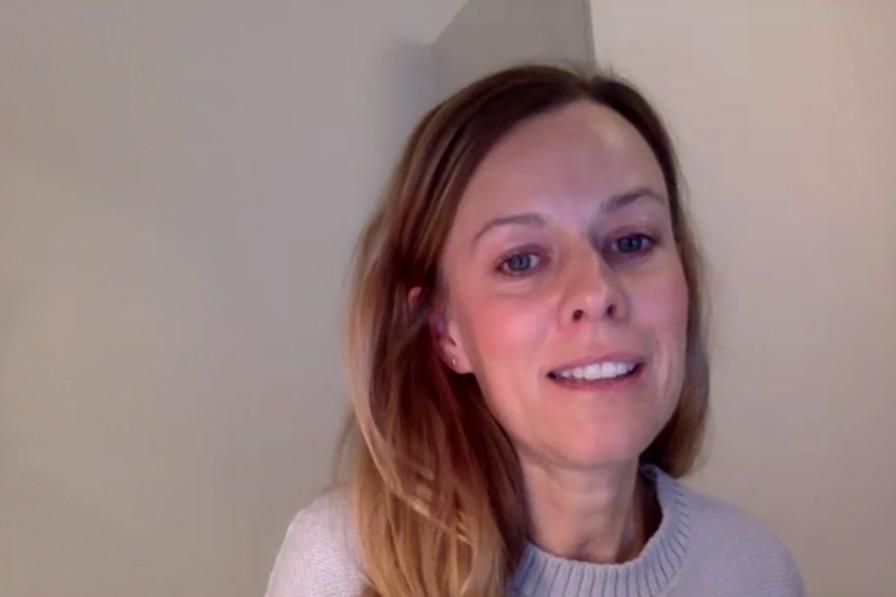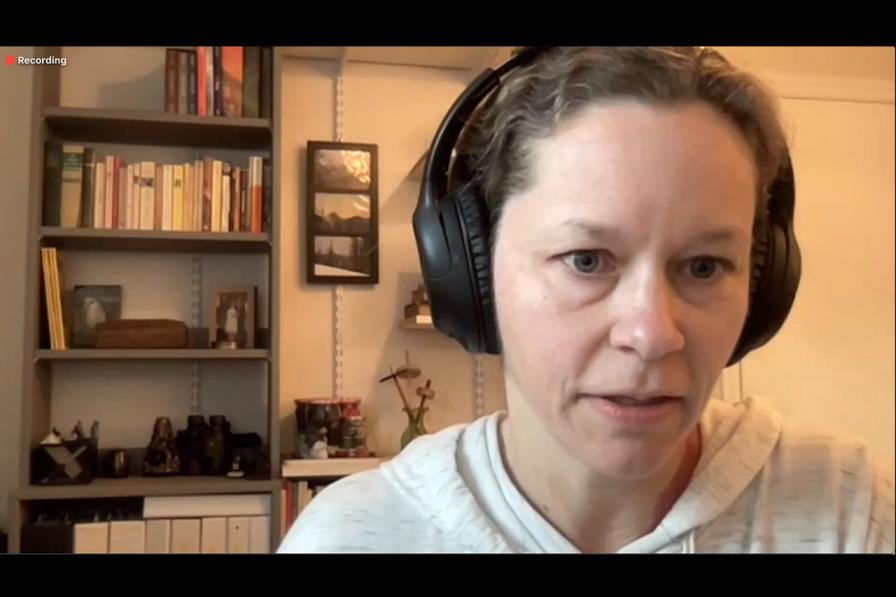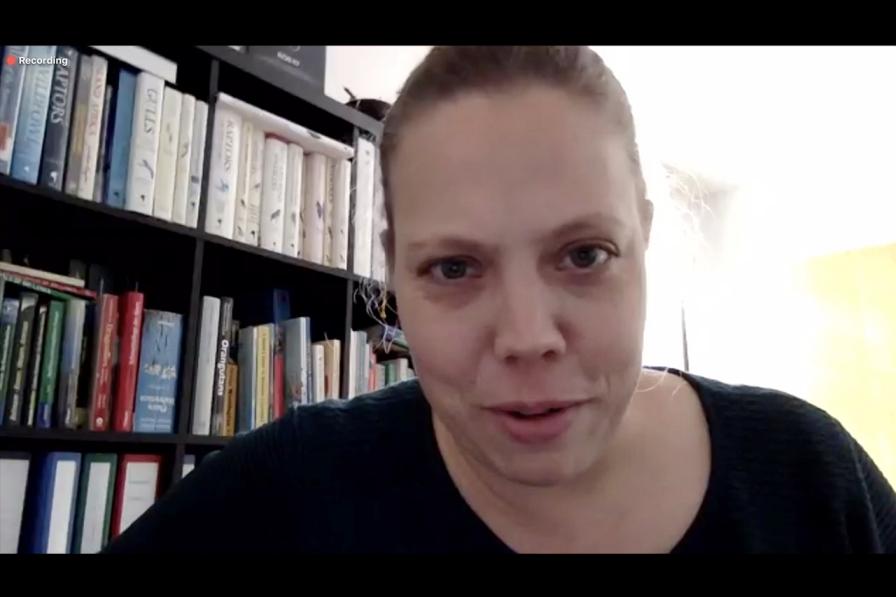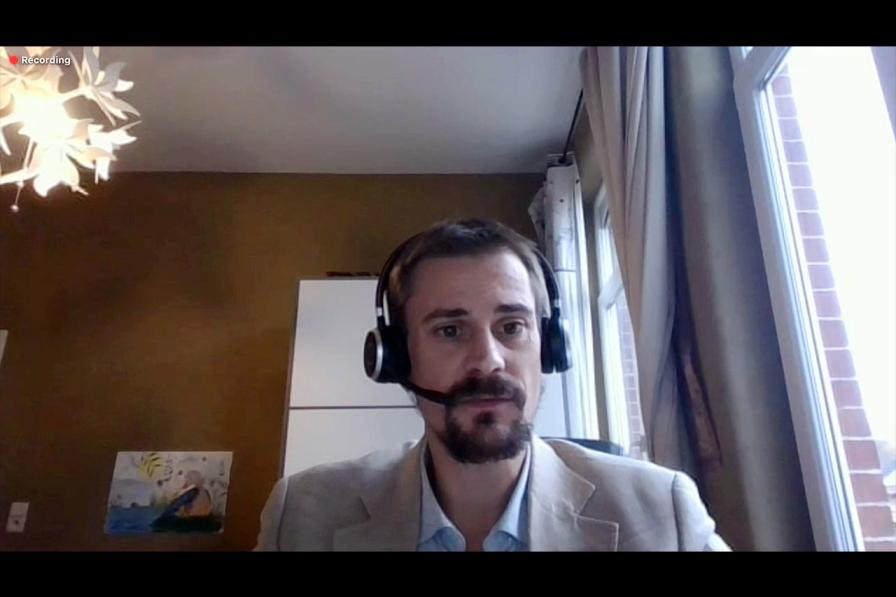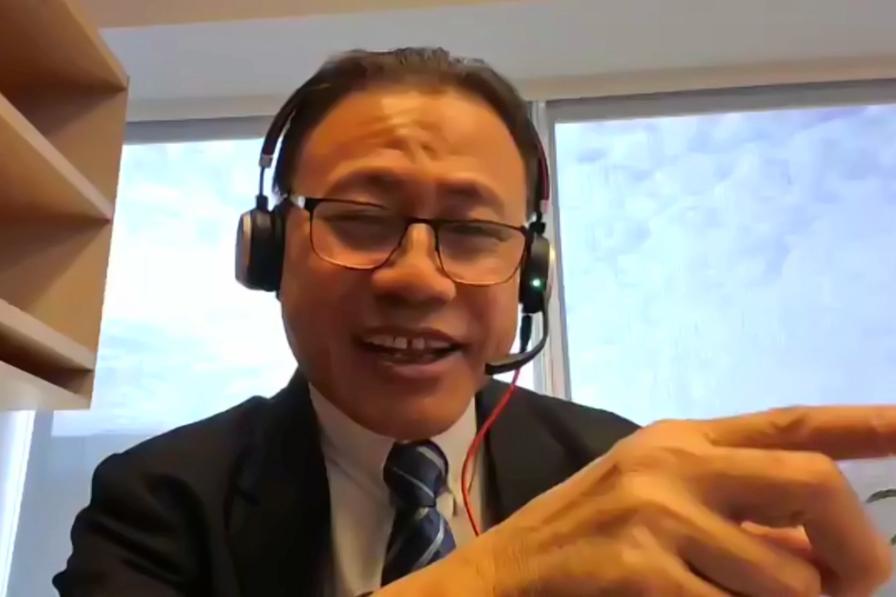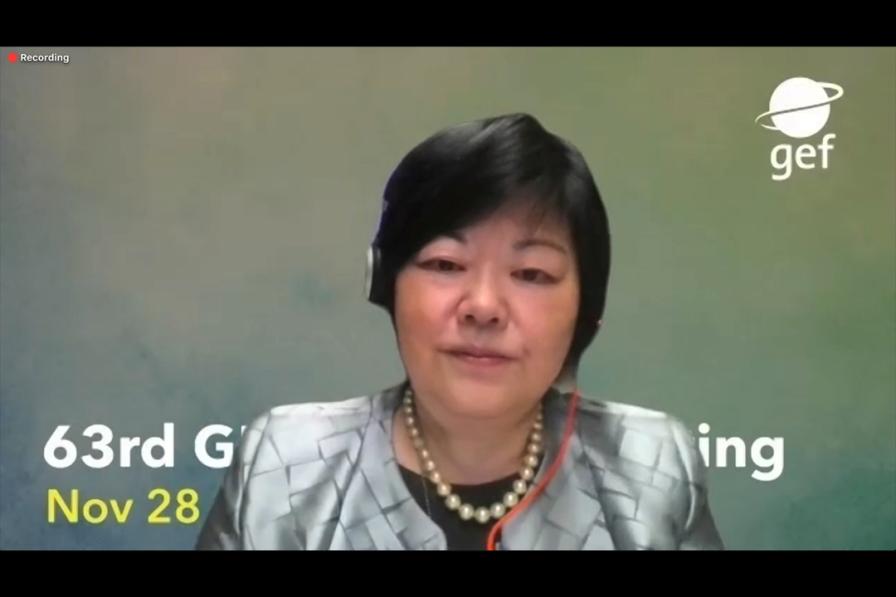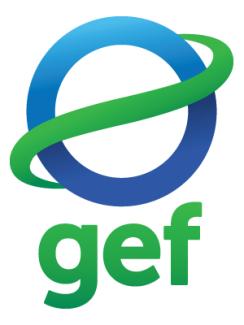The 33rd Meeting of the Least Developed Countries Fund (LDCF) and Special Climate Change Fund (SCCF) Council took place on Friday, 2 December, and adopted the first LDCF/SCCF Work Program for the eighth funding cycle of the Global Environment Facility (GEF-8). The Work Program comprises two projects requesting a total of USD 10.63 million from the two Funds, with one addressing urgent and immediate climate change adaptation priorities in one least developed country (LDC) – Cambodia - and the other supporting an innovative global initiative that will support resilience in the 58 countries included in the ‘Vulnerable 20 Group.’
Carlos Manuel Rodríguez, GEF CEO and Chairperson, opened the 33rd Meeting of the LDCF/SCCF Council. He recalled the decision by the Sharm el-Sheikh Climate Change Conference to establish a dedicated loss and damage fund, underlining the importance of this fund to LDCs and Small Island Developing States (SIDS). Rodríguez expressed the GEF’s readiness to provide any required support as the process for establishing the fund unfolds in 2023.
Rodríguez also expressed appreciation to Denmark, Finland, Germany, Ireland, Slovenia, Sweden, Switzerland, and the Walloon Region of Belgium, for pledging a total of USD 105.6 million to the two Funds, noting this support will help breathe new life into the Funds.
Ambassador Conrod Hunte, Antigua and Barbuda, Chair, Alliance of Small Island States (AOSIS), underlined the importance of the SCCF and LDCF for the vulnerable people living across the 39 SIDS globally, noting the adaptation support provided is “vital for our lives, livelihoods, ecosystems, and the wellbeing of our future generations.” Noting that most SIDS are not LDCs and cannot access the LDCF, he expressed appreciation for the new GEF-8 strategy, under which adaptation support is earmarked for SIDS through a dedicated funding window. Hunte stressed that the pledges made to date are “but a drop in the ocean” of what SIDS need for adaptation and urged more donors to contribute generously to the SCCF and LDCF.
The Council then considered the Work Program of the LDCF and SCCF. Chizuru Aoki, GEF Secretariat, presented the Work Program, noting the two projects contained in the Program take a multi-sectoral and systemic approach, targeting issues including: climate smart agriculture, rural food security, resilient agricultural value chains, and locally-led adaptation through entrepreneurship and community level solutions. She said the Work Program will generate results across the adaptation Core Indicators, including 94,000 direct beneficiaries.
All Council Members intervening expressed support for the proposed work program and for the new programming orientation under GEF-8, especially for the emphasis on climate adaptation, support for SIDS and the multi-sectoral approach.
Aoki also presented the “Progress Report on the Least Developed Countries Fund and the Special Climate Change Fund.” For the LDCF, she reported cumulative pledges amounting to USD 1.971 billion, 89.7% of which were paid contributions, and USD 1,751 billion cumulative funding approvals. Aoki said the LDCF is expected to have 60.08 million direct beneficiaries, with 1.91 million people trained. For the SCCF, Aoki reported cumulative pledges amounting to USD 356.9 million, 98% of which have been paid. She said the SCCF is expected to have 8.91 million direct beneficiaries, with 218,765 people trained.
Aloke Barnwal, GEF Secretariat, presented the Inclusive GEF Assembly Challenge Program, explaining that it aims to recognize and support the role played by community based/civil society organizations (CSOs) in delivering inclusive benefits for people and ecosystems, and to advance the whole-of-society approach by providing resources and knowledge to scale up their initiatives. He said a call for proposals will go out for high impact and innovative projects which systematically involve CSOs, Indigenous Peoples, youth, and women and girls, both as stakeholders and as solution providers/implementers. Barnwal explained the winning projects will be announced during the upcoming GEF Assembly and awarded up to USD 100,000 each for project implementation.
Thanking all Council Members and participants, Rodríguez brought the Meetings of the GEF Council and LDCF/SCCF Council to a close at 8:57 am Eastern Standard Time.
To receive free coverage of global environmental events delivered to your inbox, subscribe to the ENB Update newsletter.

